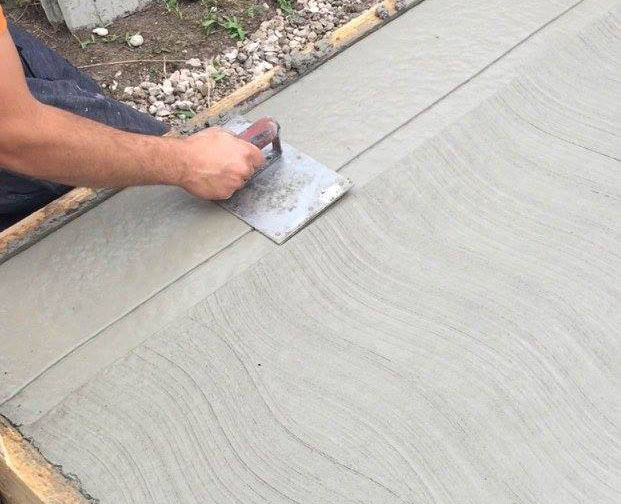Concrete is one of the most versatile and durable building materials available today. From residential driveways to commercial walkways, patios, foundations, countertops, and decorative features, custom concrete installation offers endless possibilities for your project. With proper planning and expert craftsmanship, concrete can be tailored to suit both functional and aesthetic requirements. Whether you’re a homeowner looking to upgrade your outdoor space or a business owner needing a reliable surface solution, custom concrete services provide the durability and design flexibility you need.
Why Choose Custom Concrete Installation?
Custom concrete installation is all about personalization and precision. Unlike generic concrete pours, custom installations take into account the unique dimensions, load-bearing needs, design preferences, and environmental conditions of your specific project. Here’s why it’s a smart investment:

1. Versatility in Design and Application
Concrete can be molded, colored, textured, or stamped to resemble stone, brick, tile, or even wood. Whether you want a sleek modern patio or a rustic stone-look driveway, concrete can be customized to match your aesthetic.
2. Durability and Strength
Concrete is known for its longevity and strength. Properly installed concrete can withstand years of wear and tear, harsh weather conditions, heavy foot traffic, and vehicle loads, making it ideal for both residential and commercial applications.
3. Low Maintenance
One of the biggest advantages of custom concrete installation is its low maintenance needs. Unlike materials that may crack, warp, or rot, concrete retains its structure with minimal upkeep—just routine cleaning and occasional resealing.
4. Energy Efficiency
Concrete has excellent thermal mass, meaning it absorbs and stores heat during the day and releases it slowly at night. This makes it energy-efficient for indoor flooring, helping reduce heating and cooling costs.
5. Increased Property Value
Whether you’re installing a decorative driveway or a beautifully designed backyard patio, custom concrete adds to your home’s curb appeal and overall value. Well-installed concrete surfaces often make a property more attractive to potential buyers.
Types of Custom Concrete Installation Projects
Concrete can be used in numerous ways across both residential and commercial properties. Here are some of the most popular applications:
1. Driveways
A concrete driveway offers strength, durability, and curb appeal. Custom options include stamped concrete with decorative patterns, exposed aggregate for texture, or colored concrete to match your home’s exterior.
2. Patios and Outdoor Living Spaces
Concrete patios are perfect for entertaining or relaxing outdoors. You can choose from a variety of finishes, including broomed, polished, stained, or stamped to create a custom look.
3. Sidewalks and Walkways
Concrete sidewalks can be customized to enhance your landscape design while providing a safe, solid walking surface. Decorative edging, curves, or stamped patterns can add flair to these functional features.
4. Concrete Floors
In basements, garages, showrooms, or industrial spaces, concrete floors offer a clean, professional look. With finishes such as polished, epoxy-coated, or stained, these floors can be both stylish and practical.
5. Foundations and Slabs
Concrete is the go-to material for structural foundations and slabs. Custom installations ensure precise measurements and reinforcements to support your building’s weight and meet local building codes.
6. Retaining Walls
Concrete retaining walls are not only functional for erosion control but also customizable in appearance. These walls can be poured, precast, or designed with decorative finishes.
7. Countertops and Interior Surfaces
For kitchens, bathrooms, or commercial counters, custom concrete countertops offer a modern, durable surface. They can be stained, embedded with stone or glass, and sealed to resist stains and moisture.
The Custom Concrete Installation Process
Each concrete project begins with careful planning and clear communication. To ensure you get exactly what you envision, professionals follow a detailed process from start to finish.
1. Planning and Site Evaluation
First, your contractor visits the site to evaluate conditions and understand your goals. During this stage, you’ll discuss how the area will be used, what aesthetic you want, and how the project fits your budget. This step is crucial because proper evaluation ensures that every detail — from surface preparation to design execution — aligns with your expectations.
2. Design and Material Selection
Next, you’ll choose from a wide selection of colors, patterns, and textures. Decorative options such as stamping, staining, or scoring give you complete design flexibility. Moreover, your contractor can provide samples or digital mock-ups to help you visualize the final look. By comparing finishes and materials early on, you make informed decisions that result in a beautiful and durable final product.
3. Site Preparation
Once the design is finalized, the preparation begins. The team clears debris, levels the ground, and installs a stable sub-base — typically compacted gravel — to support the new concrete. Additionally, forms are placed to define the shape and edges of your structure, while steel reinforcements or mesh are added to increase strength and durability. Because of this careful groundwork, the finished concrete will last longer and perform better under stress.
4. Concrete Pouring and Finishing
After the site is ready, the concrete is mixed and poured into the prepared forms. The crew then spreads, smooths, and levels it to ensure a flawless surface. Depending on your chosen design, you can select a broom finish for traction, a polished look for elegance, or a stamped pattern for style. Every detail is handled with precision to achieve both beauty and structural integrity.
5. Curing and Sealing
After pouring, the curing process begins. During this time, the concrete gains its full strength and durability. Curing typically takes several days to weeks, depending on weather and project size. Once the surface has hardened completely, a high-quality sealant is applied. This step protects against stains, moisture, and weather damage — ensuring your investment remains beautiful and strong for years to come.
Selecting the Right Custom Concrete Installation Contractors
Choosing the right contractor is critical to the success of your custom concrete project. Look for the following:
- Experience and Portfolio: Ask to see previous work to ensure the contractor has experience with your type of project.
- Licensing and Insurance: Confirm the contractor is licensed, bonded, and insured.
- Customer Reviews: Read online reviews and ask for references to get feedback from past clients.
- Transparent Estimates: Get a detailed quote that outlines the full scope of the project, including materials, labor, and timeline.
- Warranty: Reputable contractors often offer a warranty on workmanship, which gives you peace of mind.
Maintenance Tips for Long-Lasting Concrete
To ensure your custom concrete installation lasts for decades:
- Clean surfaces regularly to prevent staining.
- Reseal every few years, especially in areas exposed to the elements.
- Avoid using harsh de-icing chemicals in winter.
- Repair small cracks early to prevent spreading.
Conclusion
Custom Concrete Installation to Fit Your Project Needs is the perfect choice for homeowners and businesses who want durable, versatile, and visually appealing surfaces. Whether you’re designing an elegant patio, upgrading your driveway, or building a solid foundation, concrete provides exceptional strength and long-term reliability. Moreover, it offers a wide range of design possibilities — from sleek countertops and textured walkways to decorative finishes that match your style.
With professional installation and consistent maintenance, custom concrete delivers both function and beauty, transforming ordinary spaces into lasting works of craftsmanship. In addition, it increases property value while reducing the need for frequent repairs. So, whether you’re beginning a new construction project or refreshing your current landscape, investing in Custom Concrete Installation to Fit Your Project Needs ensures your surfaces remain strong, stylish, and built to impress for years to come.
FAQs
Q1: How long does custom concrete installation take?
A: Most projects take a few days to a week, depending on size, design, and weather.
Q2: Is decorative concrete more expensive than regular concrete?
A: Yes, decorative finishes like stamping or staining add cost, but they also increase value and visual appeal.
Q3: How do I maintain decorative concrete surfaces?
A: Routine cleaning and resealing every 2–3 years will protect decorative concrete from wear and discoloration.
Q4: Can concrete be poured in cold weather?
A: Yes, but it requires special techniques and additives to ensure proper curing and durability.
Q5: What’s the lifespan of a custom concrete installation?
A: With proper care, concrete can last 30–50 years or more, depending on use and exposure.

